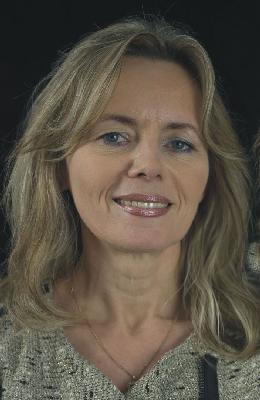Division of Functional Materials and Biomaterials
The Division of Functional Materials and Biomaterials (formerly the Division of Biomaterials and Microbiological Technologies) was established on January 1st, 2007, from the Laboratory of Biomaterials and Functional Polymers, within the Polymer Institute of the Faculty of Chemical Technology and Engineering of the former Szczecin University of Technology. At present, the Division employs 5 full-time academic staff: Professor Mirosława El Fray, the Head of the Division (also, The Director of Polymer Institute), and four Assistant Professors. Additional staff include: 1 Teaching Assistant, 1 Research Assistant Professor, 2 Research Assistants, 2 PhD students, a 2 member technical support team, and 1 administrative assistant.
The Division’s primary research focus is the synthesis/production and modification of polymeric materials for medical applications. Additionally, our Division also conducts basic research into the chemistry of polymers, composites, and polymer nanocomposites.
The most important research topics include:
· Synthesis and study of polymeric materials containing various fatty acid derivatives
· Modification of natural polymers, including chitosan, alginate, hyaluronic acid
· Synthesis of natural origin polymeric materials capable of self-assembly in aqueous media and their application in micelles/nanospheres for encapsulating drugs and other bioactive compounds
· Research into the degradation of polymeric materials, including the release of entrapped drugs
· Use of enzymes as natural catalysts for the synthesis of bioresorbable and biocompatible copolymers
· Synthesis of novel injectable biomaterials for minimally invasive procedures
· Production of three-dimensional polymer constructs by electrospinning and 3D printing
· Preparation/synthesis of multiblock copolyester nanocomposites
· Production and study of polymer composites reinforced with chopped fibres
· Application of biodegradable aliphatic copolyesters for drug microencapsulation
· Synthesis and study of elastomeric polyester networks
Our Division is well equipped to carry out this wide range of polymer science research, as well as undergraduate and graduate teaching. Polymer synthesis is carried out in professional-grade vacuum and pressure reactors. Polymer processing capabilities include Laurell spin coater (production of thin films), Zortrax 3D printer, SonoPlot microplotter, and an electrospinning setup (micro and nanofibres) with integrated of 3D capability. The mechanical properties of obtained materials are tested using Instron uniaxial and dynamic testing machines. Additional analysis equipment includes Malvern Zetasizer for measuring the size of micro- and nanoparticles, Krüss drop shape analyser, Brüker FTIR and Jasco UV-VIS spectrometers, and various optical microscopes. Analysis of low-molecular compounds (released drugs, degradation products) can be performed using Shimazdu high-performance liquid chromatograph with UV and RID detectors. A fully equipped biological laboratory, including cell culture facility with BSLII cabinets, enables conducting research with selected cell lines. Finally, ISO7 clean room (with ISO5 zone) enables sample preparation and research in dust-free conditions.
Our Division collaborates with universities, research institutes, and companies from across Poland (Warsaw University of Technology, Institute of Materials Engineering; AGH University of Science and Technology, Faculty of Materials Science and Ceramics; Institute of Nuclear Chemistry and Technology) and around the world (University of Bayreuth (Germany), Polymer Engineering, Materials Processing, Friedrich-Baur Research Institute for Biomaterials; University of Akron (USA), Department of Polymer Science; University of Erlangen-Nürnberg (Germany), Institute for Biomaterials; The New Jersey Center for Biomaterials (USA); The Weizmann Institute of Science (Israel)).
Current research projects are funded by the National Science Center (NCN) and the National Center for Research and Development (NCBiR).
SHORT BIO of Prof. El Fray

Miroslawa El Fray is full professor at the West Pomeranian University of Technology, Szczecin, director of the Polymer Institute and head of the Division of Functional Materials and Biomaterials, and director of the Nanotechnology Centre for Education and Research. She graduated from Szczecin University of Technology, where she also received her PhD in 1996. She was a post-doc at the Technical University Hamburg-Harburg, and scientific researcher at the University Bayreuth, Germany (2000-2003). She received her habilitation (DSc) at the Warsaw University of Technology in 2004. She received the Royal Society fellowship in 2005 at the Imperial College London, UK. She has completed a number of projects in cooperation with companies like DePuy Johnson & Johnson (Great Britain), Uniqema/Croda (Netherlands), Honda Europe (Germany), Philips (The Netherlands). Prof. El Fray is also the CEO of PolTiss sp z o.o., a spin off company developing the innovative PhotoBioCure technology, based on novel injectable and photocurable materials for hernia repair. The scientific achievements of prof. El Fray include more than 260 publications, including 120 publications in journals from the JCR, and 9 granted patents (including the EU and the USPTO). Her scientific background spans synthesis and characterization, biodegradation and polymer modification towards specific biomedical applications (polymers for artificial heart, heart patches, elastomeric and photocurable networks, and nanocomposites). Prof. El Fray serves as a member on International Advisory Board of the Institute of Experimental Medicine, Czech Academy of Sciences (Czech Republic), member of Biomaterials and Polymeric Materials Groups of the Materials Science Committee Polish Academy of Sciences, member of Chemistry Committee Polish Academy of Sciences, member of International Editorial Board of “Polymers in Medicine” journal, member of the Board Identifying the Council Members of the National Science Centre (Poland), member of several Advisory Groups for the Polish Ministry of Science and Higher Education.





